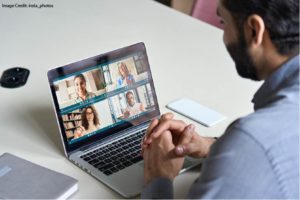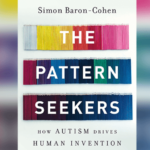Have you heard of “interteaching” before? Me neither.
The headlines for this blog sound like this:
“INTERTEACHING” HELPFULLY BALANCES TEACHER AND STUDENT EFFORT/RESPONSIBILITY
and
“INTERTEACHING” WORKS ONLINE AND ASYNCHRONOUSLY, according to recent research.
Let’s take those headlines one at a time.
Headline 1: A Helpful Balance of Work and Responsibility
Few battles rage hotter in education than the “teacher-centered” vs. “student-centered” debate. Should teachers be “sages” who explain ideas and procedures directly and precisely? Should we be “guides” who help students as they puzzle their way to discovery and understanding?
We can be tempted to think that one approach is always right, the other always wrong.
Interteaching, as I understand it, strikes a useful middle ground.
Teachers do plenty of organizing/presenting. And, students devote lots of mental energy to figuring out key ideas. As explained in this study by Gayman, Hammonds, and Rost, Interteaching includes four steps:
First: As students do assigned readings, they answer questions included in “prep-guides.” In other words: teachers guide and signal with the questions they ask, but students do the mental work to figure out the answers.
Second: Students meet in small groups (2-4) to compare answers and figure out their disagreements. Here, again, students must do lots of useful mental work.
Third: Students tell teachers (in “record sheets”) which concepts they struggled most to understand. Notice: time for student metacognition.
Fourth: Guided by that feedback, teachers prepare and present a brief lecture to explain the trickiest ideas. After several steps focused on student effort, this one invites teachers to do the heavy lifting.
By the way, an optional fifth step creates a grade incentive to encourage student participation. According to Gayman and Co., the method works with or without those incentives.
As you can see, interteaching combines “student-centered” discussions and metacognition with “teacher-centered” prep-guides and lectures. We end up being both guides and sages, depending on the step we’re in.
Headline #2: Interteaching Helps Online/Asynchronous Learners
Gayman’s study cites prior research showing the benefits of interteaching. (Short version: students learn more.)
She and her colleagues, want to know: does this approach also help students learn online, especially in asynchronous classes?
To find out, Gayman used one of her own psychology courses as a testing ground. In one section, she taught topics A, C, and E the traditional lecturey way, and topics B, D, and F with interteaching.
With the other section, she flipped that: B, D, and F got traditional lectures, and A, C, and E got interteaching love.
With this method, she could determine within the same student which method worked better.
Turns out: students learned more from interteaching as measured by unit-end quizzes. And on the final exam. (Those exams yielded more As and Bs for inter-taught material, and fewer Cs, Ds, and Fs.)
And, 82% of the students said they preferred interteaching classes to lectures.
So: yes, interteaching helps online learners, even in asynchronous classes.
Always with the Nuance
I haven’t yet found any research looking at interteaching in K-12 classrooms.
I suspect that students need a well-developed academic skills to manage the more independent parts of this approach. That is: I would hypothesize that the method works better in high school and college than with earlier grades.
In particular, the metacognitive step — the “record sheets” — could be very challenging for younger students. Even my high-school sophomores don’t reliably understand what they don’t understand. (Dunning-Kruger, I’m looking at you.)
At the same, I imagine that the underlying concepts (a balance of “student- and teacher-centeredness”) could be wisely adapted for students at various stages in their academic careers.
I’ll also be curious to hear how this approach works with different subjects (math, history, art, dance) and in different cultural contexts.
In brief: I’m intrigued by this approach, and look forward to exploring it in future posts. If only I had known about it a year ago!




